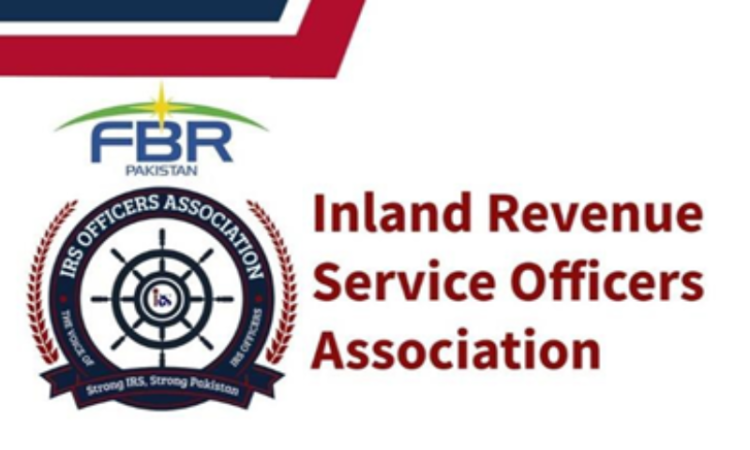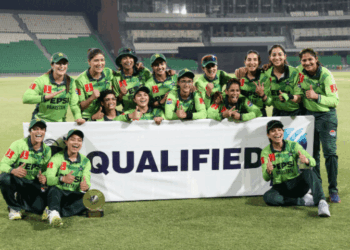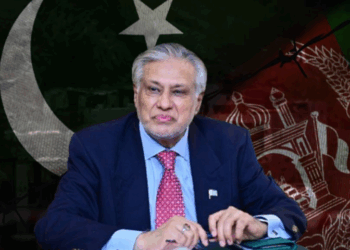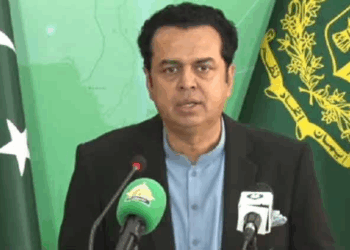Islamabad, September 21,2024-The Inland Revenue Service Officers Association (IRSOA), representing over 1,300 officers pivotal in collecting more than Rs. 9 trillion annually, wishes to express its grave concerns regarding the Federal Board of Revenue’s (FBR) recent “Transformation Plan.”
In a press release issue on Saturday, the Inland Revenue Service Officers Association said that it remains committed to ensuring effective tax collection but urges the FBR leadership to address these serious concerns. Without the necessary resources, empowerment, and transparency, no transformation plan can achieve its desired objectives. In summary, at a time of severe economic crisis, a golden opportunity to transform Pakistan into a self-reliant state has been missed by repackaging old ideas under the guise of transformation.
The association has raised following concerns on transformation of the FBR-
Non-Indigenous Plan: Contrary to claims made in some sections of the media, the so-called Transformation Plan is not an internally developed initiative of the FBR. The task force, hastily formed with IRS officers, was merely tasked with data analysis and identifying tax gaps. This task force had no involvement in formulating the recommendations or proposals that now feature in the plan.
Lack of Consultation: Since the appointment of the new Chairman, the IRSOA has repeatedly requested meetings to discuss the challenges faced by its members. These requests, including formal written submissions, have been ignored, and no time has been allocated to engage with or address our concerns.
Unfair Treatment for IRS Officers: IRSOA strongly asserts that IRS officers must be treated on par with other service groups. The implementation of a 60/40 Peer Rating system and constant references to integrity only serve to demoralize an already overstretched workforce. If performance assessments are necessary, they should be based on objective criteria, such as new taxpayer registrations, collection/recovery performance, and audit outcomes, rather than subjective peer evaluations. The 60/40 formula for IRS officers is discriminatory, especially when compared to other civil service disciplines. Moreover, IRS officers are being unfairly excluded from transparent opportunities for horizontal and vertical mobility within the hierarchy, as well as from a fair share of secretariat positions, foreign training opportunities, perks, and privileges. This has deeply demotivated one of the most talented sections of the bureau.
Work Culture and Resources: IRS officers have consistently demonstrated their integrity and efficiency. However, the prevailing work culture, characterized by excessive reporting to seniors, prevents them from focusing on productive tasks. Additionally, the Transformation Plan fails to address the basic needs of junior officers, including adequate salaries, logistical support, transportation, and accommodation. Without providing these essential resources, no transformation plan can succeed.
Disparities and Concerns:
There is a glaring disparity in how integrity issues are handled between the IRS and the Pakistan Customs Service (PCS). IRSOA demands equal treatment and transparency.
- Hiring auditors from the private sector is a major concern due to the lack of accountability and potential data leakages, as evidenced by previous issues with the Pakistan Revenue Automation Limited (PRAL).
- Field units are burdened with non-productive tasks like excessive reporting and are deprived of essential logistical support. Officers are often required to fund their field activities, travel, and staff inquiries from personal resources, which is entirely unacceptable.
- Specific Demands:
- Salaries and allowances must be aligned with those of other service groups.
- Adequate logistical support must be provided for field enforcement.
- Necessary staff and amenities should be provided to field formations as needed.
- Power and authority must be devolved in a meaningful way to empower field officers.
- Career progression and training opportunities, including international placements, should be prioritized.
- Transformation and Accountability: The IRSOA believes that hiring external auditors for the FBR will result in accountability issues and potential data breaches. Auditors should be recruited from within the organization to ensure a sense of responsibility and accountability. The current plan repeats failed ideas of the past, such as outsourcing audits to private auditors, which previously led to scandals of corruption and conflicts of interest. If this approach is enforced again, any resulting reputational damage or corruption scandals will fall squarely on the current Chairman, who, despite having no prior experience within the organization, has already presided over losses exceeding Rs. 100 billion in a single month.
- Digital Strategy and Data Sharing: IRSOA stresses the importance of aligning the digital strategy with FBR’s objectives, focusing on enhancing taxpayer experience and operational efficiency. Improved data analytics and intelligence sharing are essential for increasing tax revenue. Access to critical data must be institutionalized and decentralized to relevant stakeholders.
- Unit Empowerment: The most critical failure of the Transformation Plan is the lack of empowerment for field units. These units are overburdened with unproductive tasks, and officers are not provided with the logistical support necessary to perform their duties effectively. The plan must focus on empowering these units, redesigning job descriptions, and evaluating performance based on clear and relevant metrics.
- Inappropriate Imagery: During the presentation of the Transformation Plan to the Honorable Prime Minister, a particular slide featured the image of a snake, implying that the FBR is akin to a snake. Regardless of the intent behind this image, it was in poor taste. Anyone witnessing this presentation would inevitably associate the FBR with the negative connotations of a snake. This presentation was delivered before the highest office in the country, and such imagery has deeply hurt the sentiments and self-esteem of all officers, particularly younger ones. We interpret this as a reflection of how the worthy Chairman views and represents our organization.








